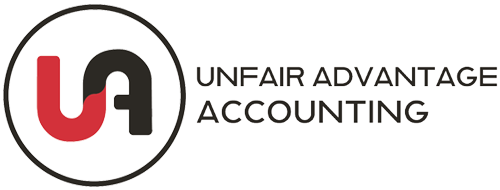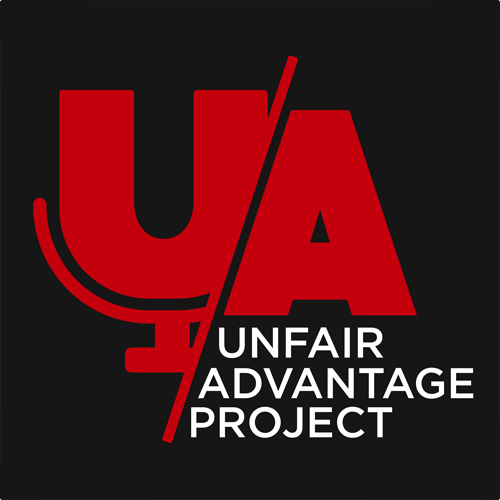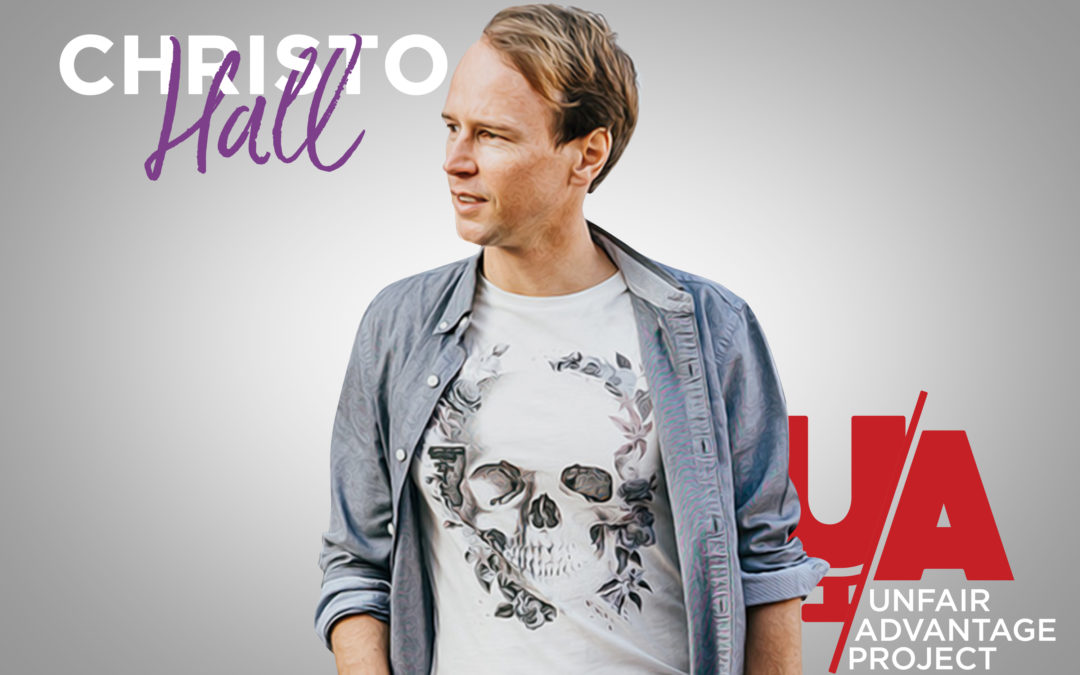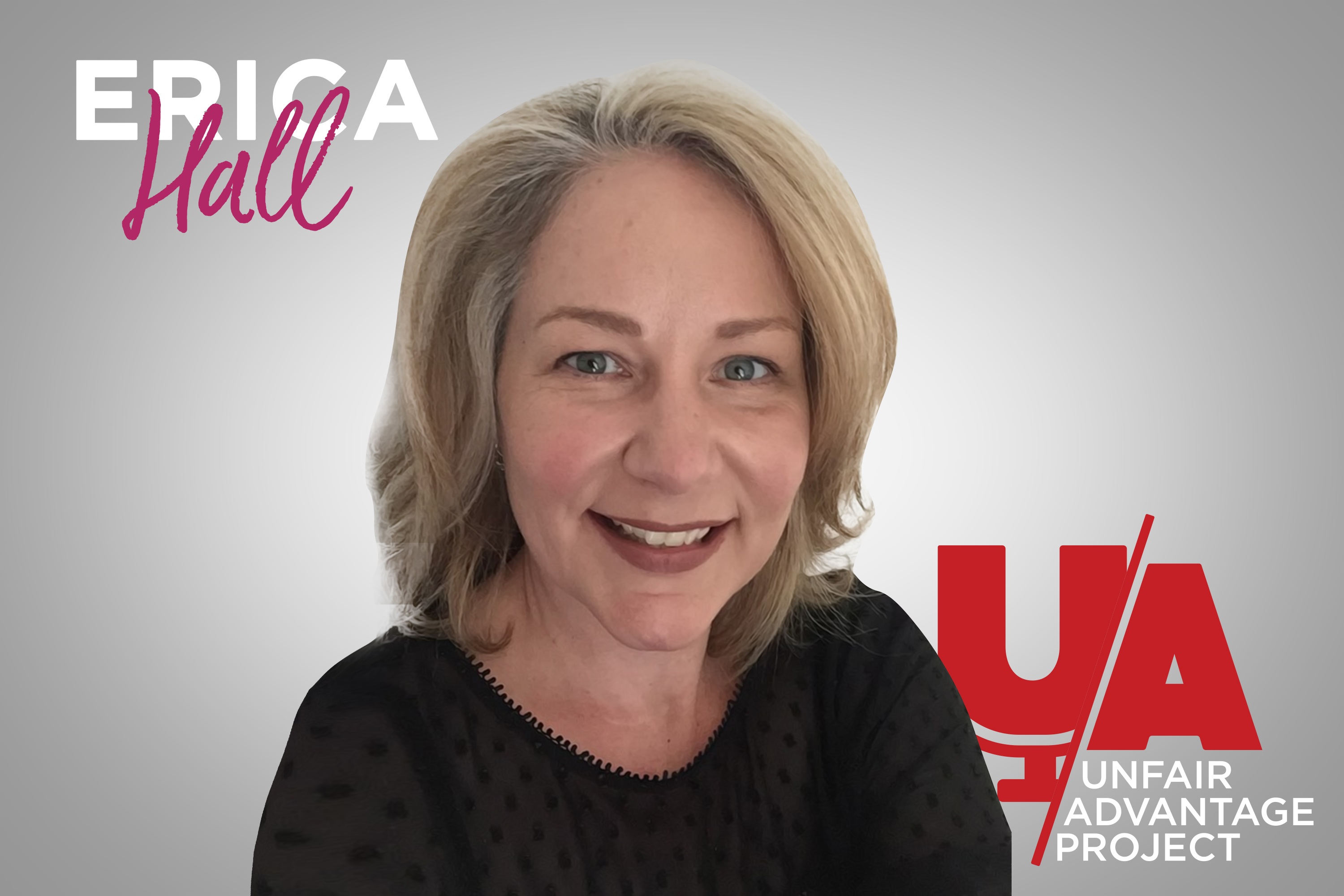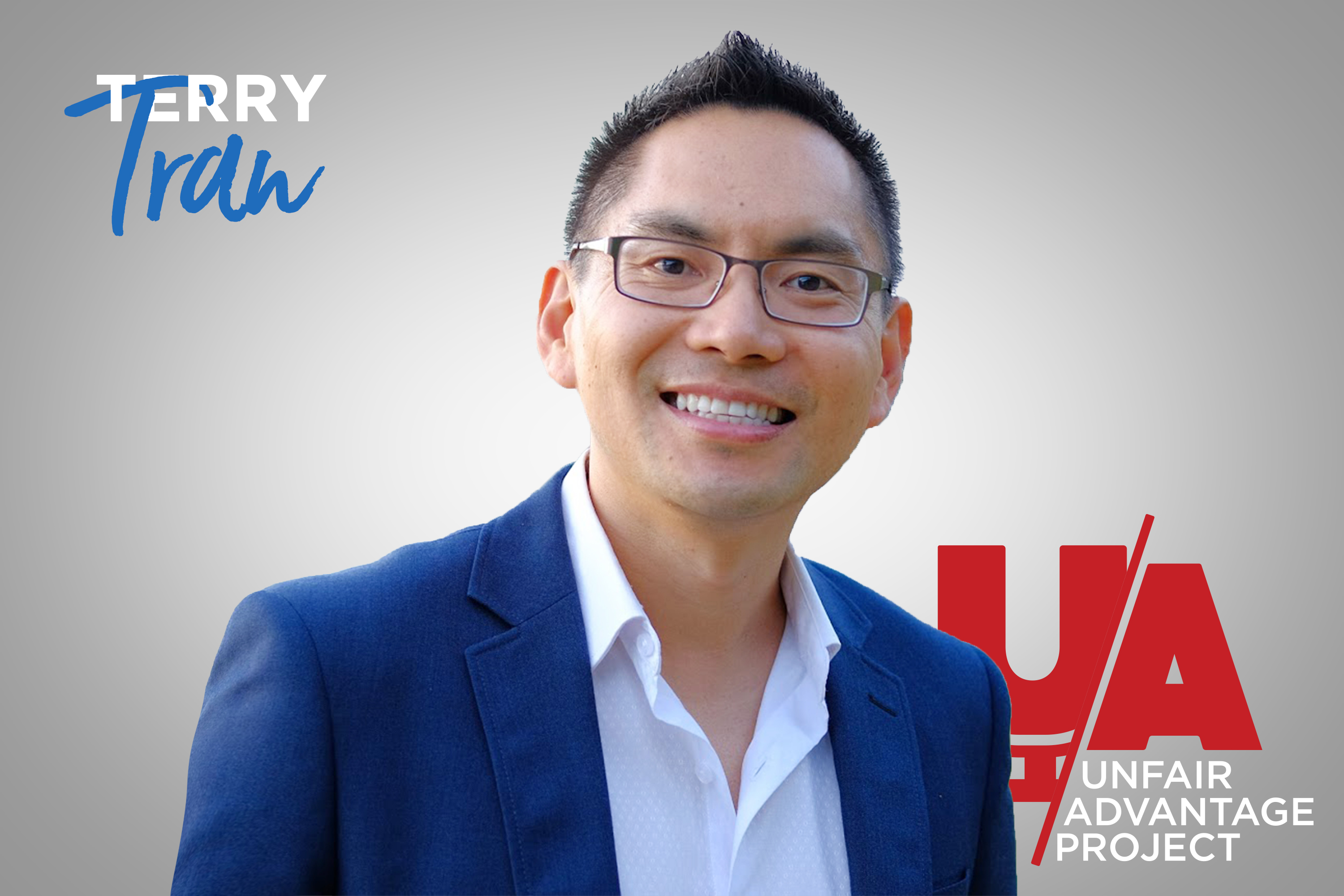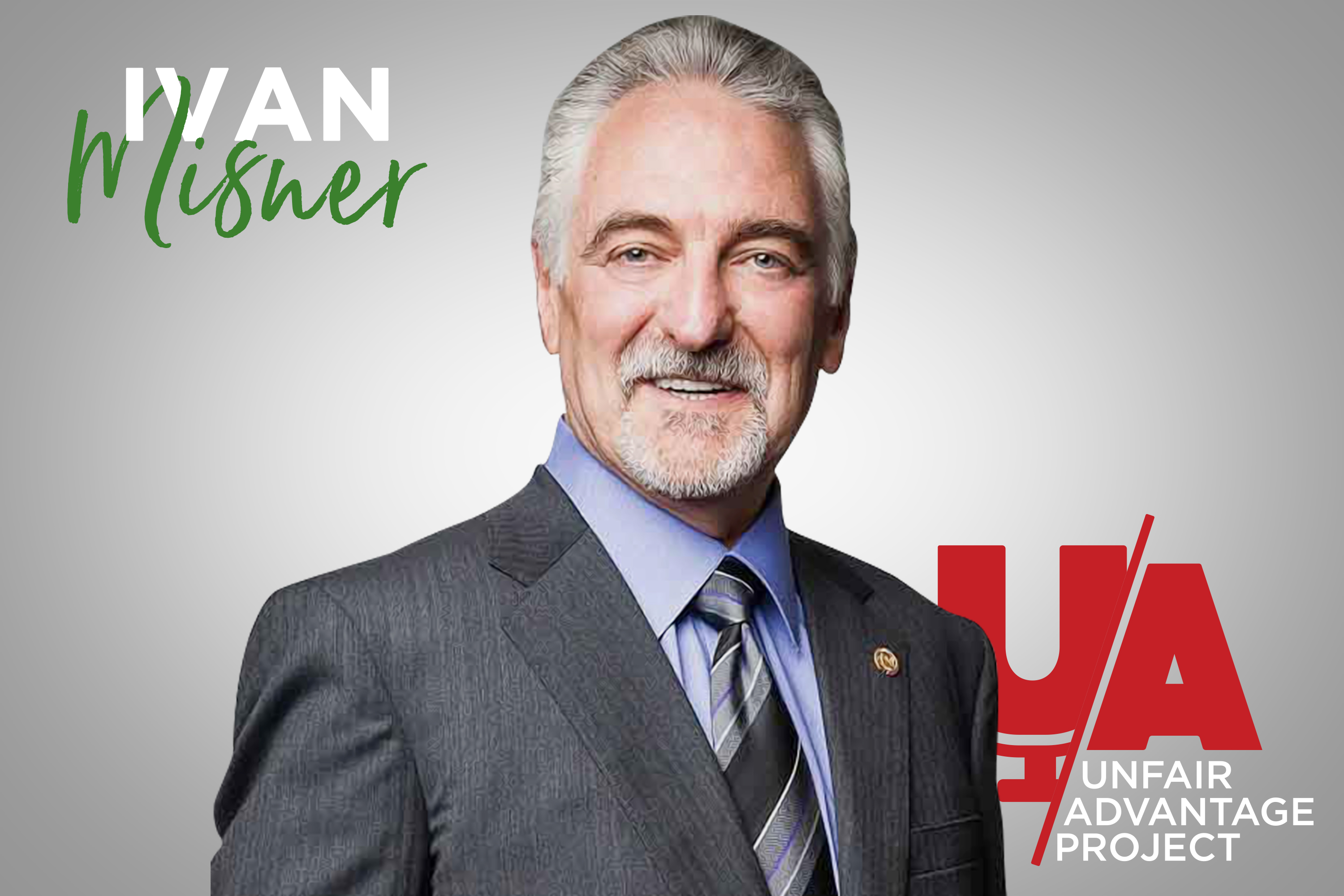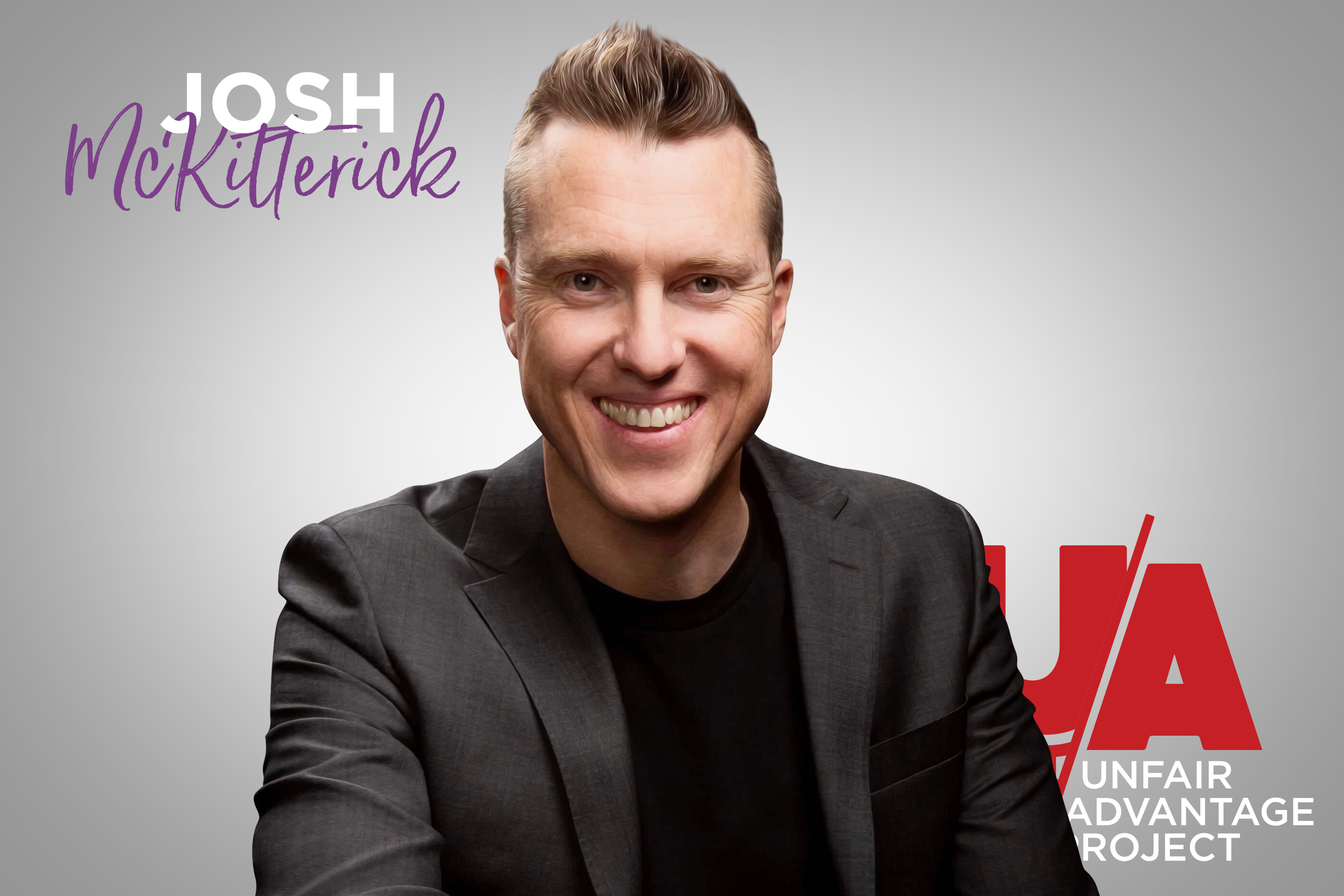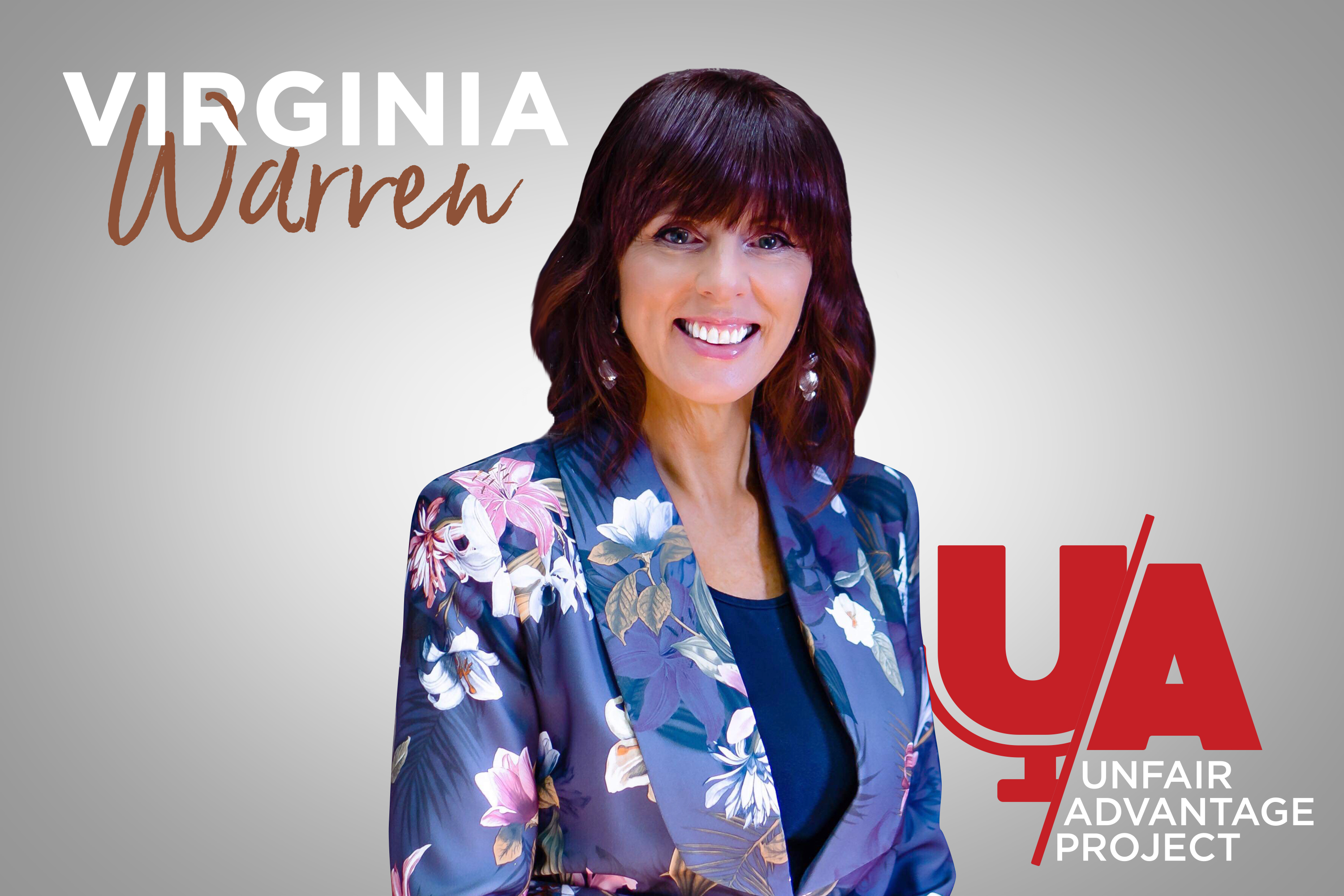Podcast: Play in new window | Download
Subscribe: Apple Podcasts | Google Podcasts | RSS
Show Notes:
Christo introduces his book. [03:06]
The inspiration behind Christo’s book. [05:17]
How important is branding to attract customers? [10:50]
Christo deliberates frustrations in line with the industry [13:19]
Lifetime value of the customers: does it matter? [18:41]
Christo highlights that establishing relationship fulfills interaction [19:08]
The problem of being a general service provider [21:48]
The importance of knowing your market [27:42]
The relationship of narrowing your niche and your cost [30:29]
Christo gives example of the significance of continual innovation in business [33:51]
The brand as self-expression according to Christo [36:33]
Follow Christo Hall:
Website – https://bit.ly/2JYpY3z, https://bit.ly/2FjNHN3
Facebook – https://bit.ly/2T90VPE
Narrator: Welcome to the Unfair Advantage Project – unique perspectives, practical insights and unexpected discoveries directly focused on giving you the unfair advantage. Introducing your hosts Nadia Hughes and Terence Toh.
Terence: Welcome to the unfair advantage project. This is very first time that we’ve tried doing live stream on Facebook simulcast Bukola with the Unfair Advantage Project. Anyway I’m Terence Toh, going to be one of your hosts today joined by Nadia our host.
Nadia: Yes, I’m Nadia Hughes and I’m very happy to be here.
Terence: And she’s always happy to be here. And today we’re privileged to be joined by Christo Hall, co-creator, co-founder all the good stuff, apparently, from basic bananas. And also co-author of a couple of best-selling books one of them being bananas about marketing and the other one being perception. Welcome Christo how are you.
Christo: Thank you. I’m very good. Thank you for having me on the show. It’s been fun already even a little conversation prior to start going live.
Terence: So yeah it was a lot of fun and we’ve discovered that Nadia thinks surfing is boring. So we can just have a whole podcast about surfing I reckon.
Christo: Yeah I think we’ve got the topic sorted out.
Nadia: I think I’ve got something from the day.
Terence: Just did back that up. Christo and I met on a trip to the Maldives a massive mine run by James Franco. Nadia is looking really excited here right now and we connected had a lot of fun. Christo helped me on to a couple of waves because I don’t have quite the skill level on a surfboard that Christo has. That’s how we met.
Christo: Just direct to him like traffic outside, this way, that way, turn around, do this, do that, just bossing him around basically.
Terence: He’s like go that wave and paddle in that direction. Now I’m like there’s not even a wave there. But there will be in a second just go. I was just listening to somebody who knows what they’re talking about.
Nadia: Well, he’s a wave whisperer.
Terence: Yeah, yeah. And something else that Chris is also really good at is marketing.
Nadia: I’m interested in this one. Can we just go straight away to that one.
Terence: And also writing books so I want to talk a little bit about perception. Your book perception. I read it recently and I actually thought it was really well written. Very engaging the whole read and I even remember the names of the characters. Let me see if I remember them right now. Danielle, Matt, And Brooke.
Christo: Yes.
Terence: And I think Max’s girlfriend or something like that was it Kylie? Something like that Kylie the marketer, maybe.
Christo: The girlfriend and marketer. Of Course Max is the Muso.
Terence: Yeah. And to me actually it was a bit of a lesson. And looking at some of the marketing that you guys put out in how well story actually works in getting people to remember you.
Christo: Very much so yeah. A lot of story a lot of marketing activities will do will be story like something that’s actually working exceptionally well at the moment that most people advise against. Like on say on. Online platforms like Facebook and things we create really really long ads that tell a story about experiences we’ve had with marketing. At times you’re up and down because everybody loves a soap opera. Everybody loves a story that we can hook into and we can resonate with or feel or emotions when we read or watch TV or whatever is a huge part of our marketing is actually storytelling. So that’s why like we do Facebook ads which are really really long and we’re talk about a hard time in business and a challenge and how we resolved it and our people read it they resonate with it. So, the book’s kind of like full lessons. Well both of them. So, we’ve got two books: perception and bananas about marketing. Both of them have stories that weave throughout and in bananas about marketing it’s about a guy who’s trying to win over a lady that he has the huts for and so he gets advice from a marketing expert so he applies his business marketing strategies to try and win over the girls. So that story kind of starts and stops throughout and then it goes into business examples and steps to have a kind of interesting stories. But it definitely makes it more engaging. Part of that was we didn’t want to ride like another marketing textbook that’s boring as hell to read and sends you to sleep on every single page.
Nadia: Now I really want to read it. So we present two people, one is very vested in your book, he’s already read it. One is having it on to do list. And now it’s actually very interesting because if at the end of our podcast I will run and read it. That’s a very good podcast.
Christo: Very good. This sounds good so we’re going in the right direction already.
Nadia: I like that. I like the tips for dating and I like the fact that it’s so relatable to everybody else. .
Christo: Yeah, yeah exactly.
Terence: So what was the inspiration? I mean let’s talk about perception. I know a little bit about that but was inspiration for you.
Christo: So with perception, a massive thing that we consider what we did or put it this way. We write the first book bananas about marketing and it has a lot of how to so it will go here’s is a strategy to lay out the text on any micrometer, a formula for copyright. Here is a strategy to approach networking. Here’s a strategy approach getting PR and media. And so it kind of has a lot of how to answer them. One thing we’re like wait a second. A lot of small businesses don’t really become known for anything because they themselves don’t even know what they want to become known for. So, what happens is imagine you say if you’re going to leave it to the world to spread the word about you, then, and your customers they all say all different things. So you never end up with as much of a big presence out there in the world. So, what? The perception is all about and the book is basically, venting or like I would say like manufacturing the perception you want people to have of you and your business. So then they have it and it basically becomes reality. So, if you consider for a business to really be known and to play at a bigger level and to be the most popular choice in their industry they have to own a thought in their prospective customers’ minds. So what that means is everyone has a ton of competition no matter what industry it is like we work with hundreds of businesses every year even thousands over the years. And every industry whether their product or service or B2B or B2C they’re all flooded. Everyone has so much competition so. But in every industry there’ll be some businesses that stand out and they get all the attention and they get the majority of the customers because they own thoughts in their customers minds so people might think of like one specific problem they’ll think of that brand or they’ll think one specific want or desire they’ll think of that brand. it will never be like 15 different products that you really own the thoughts for. If you really want to be known for something you’re only ever going to be known for like one or two kind of things. So even some to be really practical some businesses it might be that they’re known for one product. When you think of products it’s like you could say what are the trigger thoughts that you want to own in people’s minds? So if people have this thought they think brand. Yet clear on what that is or another way to work it could be like if I was like the biggest raving fan of a business like their very best customer I would you go away to one of my friends and I’m only going to say one or two words to my friend about the business. I’m not going to talk for 15 minutes about it. So that every business needs to get clear on what are the one or two words that you would like your customers to tell their friends and then you push that out through every touch-point you have with any human in relation to your business. So that people have seen it enough that you know specifically that saying and then they start to think and basically then you become known for it. And then if I ever got to happen is kicker what people think and they perceive you as that thing, and then humans will use your brand to represent themselves. So like a classic example like Harley-Davidson are known for being rebellious and all this. They’ve just told us that through their marketing and expressing freedom. And then humans will then use that brand like wear a Harley Davidson shirt to say look I’m a bit of a rebel. Like basically expressing themselves by using those brands. We all do it. We buy certain shoes, we buy clothing, we buy glasses, we buy bags, we drive cars that tell the world who we are because that brands amplify the message and if they become known for something and then we use them to express ourselves. And so there’s a really long answer to your question about the perception that’s kind of what making the whole book about and then looking at different spaces — different industries. Because sometimes, people might hear what I’m saying now and they go oh yeah that makes sense for like a sunglasses store. They can become known as the go to for Arabian’s or something like well and I’m a consultant. What about me. Well then you are the brand so you need to become known for something or specific, provide a specific solution. So, you really start to own thoughts. Versus trying to be everything to anyone and you never end up with as much of a presence out there. So, yeah.
Terence: Owning that space by dormice it’s like you are what other people think of you. And one thing that I saw in your book Toccara really resonated with me. I mean you said it a slightly different way but I think it’s similar to something that I’ve said a couple of times maybe. Your brand is the way that you make someone feel. And I think it use the word emotion maybe in there I should quote the book directly but that resonates with me a lot.
Nadia: Basically, in order for me to get really into your book and everything what I would like you to do is a little experiment. If some business will approach to you, some startup, and quite often, this unfair advantage project designed to help people grow their businesses. So what I would like: pick any business you think would be a good example for and can we just create this reception for them what should start focusing on in this session with a marketer. Would you like it? Right now..
Christo: Yeah. I like it.
Nadia: He’s a startup, she’s a startup let’s just do it.
Christo: I like it. So, well let’s go to any industry, we can basically do anyway like sellers. If someone’s forming a brand, right now. And even actually just to reinforce it should be anyone even if they’ve been in business for 40 years. You want to be reviewing this because it’s a work in progress. So what we can discuss now should be applied whether it’s someone who’s in their first year or just starting out or someone who’s been in business for 40 years because it’s likely that is teaching along doing what they’ve always done. And to make sure you’re always current. You should be revisiting the marketing messaging the positioning of your brand every 90 days I believe because trends change, fashions change. The words your customer’s think changes so you always want to make sure you can. And sometimes your customer base might evolve to be a more of a . . . let’s say a better customer buys like a more lucrative customer base that makes you more money. So you want to adjust things to become more of a magnet to those kind of customers like nothing’s even in business ever, right? You’ve got to evolve and got to make sure.
Terence: Yeah. I think that’s true. Like just the really practical application is I had a business previously and I was in the automotive industry and I think that my market matured with me if that makes sense.
Christo: Yeah. Yes. Yeah, for sure.
Nadia: You look mature.
Terence: Yeah. I always get this thing about how many kids have you got. You don’t even look like you’ve got any kids. You are old enough to have kids or you’re not old enough to have any experience in a business, that’s for sure.
Nadia: So that’s your first thing is just –.
Terence: Yeah I did find that I found that the better I got at what I was doing. That started to attract a different market because I could have a different type of a conversation with those people. And then so you understand my market became. . I don’t know if maturity is even the right word maybe, more — I’m looking for the right word but I can’t find it right now.
Christo: It like evolves with you I guess.
Terence: Absolutely.
Christo: I see it all the time and see it with businesses we’re working with as well.
Nadia: So are we going to play or not?
Christo: Yeah let’s play. So pick a business or what’s the industry.
Terence: Yeah, I think you pick a business, Nadia.
Nadia: I will pick plumber: their struggles – the struggle to find identities, their cut throat competition. They all undercut each other’s appraises by price. Yeah. Well what they hear from clients a lot.
Christo: Okay, so with the plumber, a couple of things I’d want them to look at first of all what are current frustrations in their industry. So if say a plumber or anyone listening there’s any industry would follow similar formula. So we go what are current frustrations within your industry. Because, if we see things like that, then it’s not clean. That they’re dirty, that they don’t show up on time. They’re charging money and you don’t know whether you’re actually getting what you paid for. We want to know what these common things are because this is going to help us look and go how we can make you different in your space. What I’d typically ask someone as well in a space is go okay for your own brand there are few questions I need to get out of them. And so that will be: one, like what current frustrations in that space which is in you, is different, basically. I’d want to know from them, themselves, some things like just even throwing a question like I said before like if you had a happy customer right now and they were telling their friend about you what would you want them to say? So you need to write them down so you’re getting clear on what you basically want to be known for. Another question I typically throw out someone is look if I was like a let’s say 100 years into the future, what would you want your brand to be remembered for. Like remember how they did this so they were great and they changed the industry by doing this. Because and what we’re going to look for in their answers from these. Then what we could do also say: look what do you just want to be known for at the moment like they might know some things. And then look for common threads throughout the answers. What else, what else, what else, okay. They might say I want to be known for being the one that whatever change X Y Z and then we actually have said X Y Z five times now are you different answers. That’s a bit of a common thread. We want to boil things down, to be because typically what people. Will often then do is oh say look I want to be known for like 10 different things. Although I list them out like company values like this, or this, or this, or this or this. It’s like okay cool. Of all these things if we want to try and try if it’s possible to get down to say two things that they’re going to try and be known for. What couple are the questions or at them? I want to know. What’s your most lucrative job you do at the moment? So, you’re a plumber. What’s a good job for you and to pass that I love you enjoy it and it makes money. So what does a good job for you at the moment? And also another question, what’s your most common inquiry at the moment? Like the most common sale you make. Because I might say look, the best one is doing a full renovations job but they’re really hard to get. The most common inquiry we get is a blocked drain like okay cool. The most common land block drinkers maybe that will be an entry point job to then sell the renovations. Jobs are the more lucrative things so we might go okay well look let’s try and narrow your messaging to be this potential if we go down this path it could be they say look drainage. We get so many drainage inquiries but it’s even a pretty shitty, sorry. I did say the right word for plumbing.
Terence: You did. Yeah. It was just you getting into character.
Christo: Exactly. So, we might suddenly go you know what. You get all these inquiries for drainage maybe we’ll try and own this waste of drainage so there’s enough people out there looking for drainage, jobs of drainage and then we’ll get you in the door with drainage, and then when you get in the door, you’ve got to make sure every one of those common fears or common frustrations which we mentioned at the start like being clean, being on time. Maybe leaving the place cleaner than you find it. Like you have all these promises that show when you come in the door you’re now getting paid to come into that person’s home to market everything else you do to them. So this is purely an entry point job. . . Did get him for the drainage. You have a brochure on hand. You educate the homeowner whether you’re a plumber from here on in. And so you have the full price of everything you do is should be sold in sequence in any industry. I want jobs to sell the next, the next, the next.
Nadia: Christo, if I understand you correctly what with do. We picking something’s that we are really good with. It’s set quick way to impress the customer. If you have to pick something it’s a low hanging fruit as we have established in our last podcast and how we go from there because they impressed how quick, efficient and clean you are. And then it’s introduces you to the opportunity of offering other services which is more lucrative than their drainage. Quite often what people do what I see with the clients, They tried to stay away from these less lucrative jobs. They don’t see it as an opportunity or point of entry. And quite often they say: well it’s the whole is itself and everything their almost doing it at cost or loss. So it’s all loss of the thing. So what I hear and this is correct because even from financial point of view it’s a cost of your marketing of having a low margins item being so harassed.
Christo: Yes. Yeah, for sure. Yeah. That’s typically the way it will be. It’s like consider that first job a marketing exercise because the thing that’s really sustainable for your business is getting invited back to do the other jobs, the other jobs, the lifetime value of the customers not just the one off trying to get as much as you can and then never see them again.
Nadia: So drainage is basically, it’s your opportunity to establish relationship fulfills interaction.
Christo: Yes. Yeah. It can be variables on this because with sometimes with certain businesses we might go or you’re getting quite a few inquiries for something that’s already pretty lucrative. Like let’s go there but that’s why I threw the questioning because different things can come out depending on the business and their market and who they work with; like a consultant that consults to corporates with his leadership skills. He was getting some odd corporate job but he was also doing just small businesses as well. And with his leadership skills, he could maybe sell easier to smaller businesses. But the most lucrative because through the questioning, it was like, wow you only need a couple of these corporate clients to do what you might do with 100 small business cards. So, when his space it made sense, let’s purely position you as they go to leadership concern for corporate. So, he cut off the other offerings completely just to give you a different example because that made sense because the others are all like it almost like a distraction. If a corporate is looking at his business and it says his leadership consults for corporates small business and for like I don’t know sports teams or something and they’re like no we want the expert for us. So just in that example it right nation the marketing. Because it was really obvious who what was most lucrative for him.
Terence: I would love to go into depth with this just a little bit more because something I see often is a fear of niching down. It’s like. . . niche Down again going to miss out on the market and I love the way that you just kind of put it because niching down is where you find some really core opportunities. But some quick wins and it’s what you can become known for. And I think part of that fear might be the fact that then, “hey! I’m losing the rest of the market.” Like okay well maybe if I niched down unflattering 5 percent of the market . . .
Nadia: Why don’t you expand on dating… when you pick the right woman to marry you’re missing out on the rest
Terence: I don’t know if I’m the best qualified person to speak about that. So the book and also why it’s a lot better with business than women and I think. Is that. But now I think it is definite fear of missing out. Like okay were niche down then I’m going to miss out on all this other stuff. Yeah that’s really not the case. How would you frame that?
Christo: Yeah. And that’s a good question actually it’s led me to another thought. Though because it’s a common thing, let’s say if that plumber we say alright let’s focus on drainage like just we are making that example up obviously. But let’s just say okay let’s focus on drainage. As with most of your marketing because that’s an entry point and then he says wait a second I’m like get lots of jobs at the moment – fixing hot water systems or whatever. I don’t get a lot but I get some, suddenly just put my marketing out there says drainage because then I lose all those other jobs. The problem with this is: in every industry if you try and be, trying to be like a general everything in any space, he lost against every other person in that pool like in that space so it’s hard to be known as just the go to plumber on planet Earth. Like, sure there will be the odd plumber that seems to just be a general plumber and everyone knows it but in any industry it’s like that with the odd exception. But that’s the fear that comes out with much trying to be everything we’ve just become known for nothing. So we need something that cuts through it, gets inside their heads so we start to occupy the thoughts. So it’s not purely dependent on having an ad in front of the person at the right time that they need you because you’re paying for those kinds of things. That’s an expense. You want to be known like we want it to be inside their head inside their thoughts. And really easy to refer just on that point to another thing that comes up which is a legitimate fear. So let’s say that works for a plumber because there are enough drainage jobs out there that they could niche as Mr. Drainage man. And then they get in the door as being the drainage guy and they get a flow on of enough business because there are enough drainage jobs as an entry point. But what if, it’s a gym owner and the gym owner’s people only travel from a certain radius to go to the gym. And if she, the gym owner, like one example backer gym owner we worked with had a weight room with bodybuilding type men coming. She had cycle classes, pump classes. She had Pilates classes. Now if she suddenly rebranded the gym as Pilates classes Northern Beaches and that was the whole name of it. Suddenly she just looks like that. One thing, that’s gonna — she’s going to lose the men coming to the white throne, right? So this is a little bit of a different because if she niched down her business has different products that have different niche customers. So, in this example, because people don’t travel for four hours to go to the gyms, her market comes from a certain area. And she can’t have different products so her brand will be a general brand will look like in the health space and in that kind of gym space. How would be different? What she wants to be known for? Special kind of general brand with a business purpose. And that’s the general brand that then you do niched campaigns that reach out to the different customer base. So she might do a niche campaign for the Pilates classes where we go okay look it’s a 35 year old woman and she’s interested in this. The other problems in Pilates is this, and this, and this is how we can be different in the Pilates world. So it’s almost like where we’re looking at the niche of just Pilates as a product and media campaigns to sell that product. Then we’ll look at the niche as a separate niche of body builder type men. And we’ve got a correct messaging specifically for them to market the way through. As an example. Yes she’ll cut the brand almost well there’s a general purpose and then have different niche products with different niche markets. Yeah that’s how she can earn more money. Basically make more money.
What they hear from you is there are two distinct goals some ways of approaching marketing. One is niche speaking to you by random just frequent occurrence something happens to you, it’s just you walk into their quite a few jobs on drainage and you just decide and this is your niche or what I quite often suggest to a client: undertake some training in their very own specialised media. To be servicing this market you have to have higher qualifications. Therefore the point of entry is harder which means you cut out your competition. From this point of view. But it requires a bit of effort and that’s what they call niche by design. You design yourself your own niche. That’s why I came here to create the distinction. Some people have basic approach was their niche walks up. They walk into their niche and then their niche takes over, so I think. And there was one is when they take a sort of faith in their hands and go for it.
Christo: Sure, it’s another way of course. If you can add on the extra qualifications make you different in your space.
Nadia: I encourage my clients to research the space of future what will be the holding and the staff going. So therefore they are now looking into technology. A lot of plumbers, a lot of electricians now looking in technology housing.
Terence: Yeah. Think in your there areas that . . look I wrote down a note I’ll share it with you . If you’re not known for something, you’re known for nothing.
Christo: Yeah.
Terence: That’s what I got in what you said earlier.
Christo: Yeah, I guess you want the world to talk about, you’ve got to give them something to say… to talk about you’ve got to give the media something to say to.
Terence: And what I kind of got out of what you said earlier was that even if you’re in a broader niche. So if you want to be able to serve a broader market, you got to be able to focus on something. So, that’s maybe, taking a single point of focus to be able to market. You can still then market to a very specific person who has it very specific . . . who needs a very specific solution for something.
Nadia: We all know there exponential imagery or focus. When you focus things start falling and porting the imaging to the same source, then, it starts happening.
Christo: It makes it easier when you know you’re talking to and who you marketing to. It makes it a lot easier when the clearer you are on who they are. Everything you put out is for them; you’re writing for them, you’re creating for them. We create things to be more like a magnet to them. On niche too something that might be beneficial to just while we’re on it that came to mind is you can niche. Sometimes the niche you could be like a specific demographic. Like — or a business saver like a specific individual sort of style you working with a specific business that you’re working with or it could be specific or problem like specific problem. It could be like the plumber suddenly goes a look on the niche plumber who specializes in supermarkets or whatever you know. Let’s just go to for high rise buildings plumber. Like, we are the expert in that space and that’s our demographic or we go specific problem like the drainage. So it’s like. You said that might be like a business coach where you could have. Business coaches that work with accountants and that’s it or business coach that work with health clinics. And a like known as the health clinic business coach expert or — and that’s like a vertical; like those different industries or you have a cross section which is of a specific problem that businesses have. And you’re the solution to that problem across different industries as like a horizontal.
Terence: Maybe you’re working on tiles for instance.
Christo: Exactly, like a cross section and experiencing this yeah or your teams at this size. You can’t breakthrough the team of getting over 10 staffs. Or something like that. Or breaking the revenue to crack over 2 million-mark or someone you know like that could be exactly. Or its team annoying and you want better staff, better productive team that could be a problem. That’s a cross section or you go on specific — or you both, you say, look on the assist businesses to grow their team and have more productive team within the legal industry. It’s as long as it’s not getting too narrow. In the legal industry that live in Western New South Wales and in towns with thunders trying to, there’s obviously got to be enough volume there.
Terence: Yeah well that’s a good question. So when do you know you’ve gone too narrow. Is it just when you’ve got no clients?
Christo: Yeah, you have no clients —
Nadia: You just can do it with your eyes closed. Then there is no developmental evolution happens.
Terence: Because we hear about just trying to talk to one person, right? Like literally a lot of people talk about an avatar and then they say you’ve got to imagine that avatar, give them a name. And give them very specific, psychographic and demographic qualities. And then, so, how do you know when you’ve taken all that too far?
Christo: Basically this is just not enough volume unless you like obviously point of business is making money. So, if you go quite narrow where but it’s still very lucrative. Like there’s still people who are willing to pay because if you’re so specific as an expert in something where there are very few people and there isn’t a demand out there even if it’s small you charge a lot more. So this is a sliding kind of scale right. It’s like, you get narrow and narrow with your niche then you’re more of an expert, the more specialized, you can charge more but you’re getting to a smaller market, obviously. So it’s a sliding scale then you go okay you get more broad, you got more audience but you’re not specifically sampling. So you generally wouldn’t charge as much. It’s broader in that example like I was looking for a food like food scientist in Australia it’s looking at this product to develop and grow. And it’s like okay I found a few people. You know like only very few people that had really good credibility experience with decent credible brands and things. And then I’m like: Okay what’s your right and I go okay look I’ll sit down to discuss things in every 5000 bucks and I go okay well that’s for you and you’ve got credibility, that’s okay. Whereas if I’m talking to a nutritionist in Narrabeen here at home, that’s not really specialised in something. Then they’re going to charge me probably 60 bucks to sit down. You get the idea.
Terence: Yeah totally. And I’ve got direct experience with that. I had a business in the automotive industry. We specialize we were known a lot for working with Audi at the time and we did a lot of higher end electronics enhancements for those cars and anybody in that market knew who we were. The first thing was that we got to charge a premium rate for anything that we did. Our competition probably anywhere knew what we were doing. But then again they weren’t giving anywhere near their service or the quality of work that we could provide at the time because we just had so much more expertise. And so in terms of market share we had massive market share because everybody just knew it was an Audi and it needs something like Tronic take it so these guys don’t actually know what they’re doing. On the other side of that that didn’t stop us from working on brands like Mercedes and BMW and Ferrari and Maserati and Lamborghini and all those brands. And we became more and more not to be able to work with those brands as well. So again a kind of a like what you say about being able to charge a premium because of it. It doesn’t really prevent you necessarily from doing more than just what you’re known for to begin with.
Christo: Yeah, yeah. Did you get to drive those cars when you saw it.
Terence: I did have, we had a couple of R8’s for the wedding which were gifted to us. And yeah an R8 Spyder two black R8’s, one Spyder and one hard top and it was a lot of fun.
Christo: I’m not even a car man. I bought the Tesla when we were, remember I just ordered it when we were in the Maldives I ordered a Tesla probably that week before. And then it took ages, it took about i don’t know two or three months to arrive in Australia and I got it now. That’s a lot of fun.
Terence: You told a great story I came and saw one of Christo’s little presentations and wanted to share the story quickly about the Tesla things, slightly.
Christo: So basically, called them up and said I want to buy a Tesla that you have a black line, like black inside and black outside, latest kind of sports car. There’s an all — look we’ve got blue with all these extra specs and upgraded things you know you should come and have a test drive, and i was like nah nah, I just want the black. Have you got black, and it’s oh maybe and then anyway I ended up talking a couple of calls and then spoke to the guy’s boss even and they still eventually they were like just come and take one home. I said No I don’t need to. He said look alright we’ve got a black one on the way from the States. It’ll be at least kind of two months to land. Do you want to talk about that one? I was like yeah let’s do it and i bought it over the phone. He’s saying but you should come and drive one, test drive it; sit in it. It’s like have you ever driven one, I’m like, “No”, have you even sat in one? And I’m like “No”. And he’s thinking on this crazy guy because they’re not cheap. But there’s a good story brand back which is probably nice in a nice way to wrap this up in terms for being known for something. Two and a half years prior to buying that, over the phone, the car, I walked into a Tesla store in Santa Monica, Third Street Promenade in California. There’s a Tesla shop like Tesla Store. And I thought I’m getting one of these cars. These things like magic like fully electric like you can’t believe it it’s on it’s silent. It’s not even . . . there’s no sound. It’s like it’s… I like this it’s like your blender at home it’s either going or it’s not. There’s no engine running. It’s like magic. And I followed Tesla for two and a half years. They’ve been building trust with me. I’ve Seen the innovations I’ve seen the updates I’ve seen their brand personality. I’ve seen what they’re known for and how they push the limits. So, two things that cut through for their brand were continual innovation like regardless of caring what the industry is doing they’re doing fun innovations or the amazing innovations and updates and things to these cars. And also the brand does have a bit of a quirky fun personality. So it’s in my head as: Am I going to buy old Toyota, I’m going to buy all these straightforward European brands. Now I like the fun of like. Just one obvious example is the range of Teslas is S, 3, X. Like they wanted S E X the different range but i think its Ford or someone has the model E so they couldn’t get E so they went S 3 X.
Terence: Model Y is coming.
Christo: Yeah Y is coming. Yeah, exactly. So sexy as the range. And then there’s little quirks the volume is turned up to 11 in the car and always basically got to the point where I didn’t even care how the car drives. Because. Then I have had this consistent messaging that’s built trust and familiarity with me. I was happy to buy it even if the thing drives like a piece of… won’t say the word again.
Terence: Can we get back to how you feel driving it?
Christo: Yeah. And then exactly how I feel driving and how I feel when I walk to it. It’s more than what the car is because what it does and this is what brands do. It’s being . . . it’s an expression of basically of myself. I feel good like someone with a Gucci handbag. They feel good about their Gucci handbag. Because when they walk in a room it says look who just walked into the room. It’s not about carrying your make up and your wallet and your cash, it’s about saying this is who I am because the brand means something. Because it amplified that thing. People perceive it as something.
Nadia: Perception over function.
Christo: Exactly. And then humans use it to express themselves. Yeah, yeah.
Terence: That’s awesome. Christo, I am mindful of time so I got to say thanks a lot for being a part of this. We’ve got it live on Facebook first time ever. That was great. Thanks for sharing with us while we got the technology right. How can our listener connect with you to begin with?
Christo: Yes, thank you. Go to basicbananas.com it’s the best place. If you want to connect with me personally it’s just Christo Hall, you’ll found me on social media. There’s usually a surfing image. Facebook, and Instagram, LinkedIn it’s Christo Hall. There’s not a lot out there one based in Sydney and otherwise basicbananas.com. The best thing to do is like the workshops; you come along and hang out with the blastoff half day workshop. We run that all around Australia, New Zealand, Canada and we’re in seven cities now in the states in the USA so we’re kind of adding new cities all the time and a half day, low cost, high value workshop. Our approach is just give it time to value and people who like us will come back and want to learn more from us and work with us so that’s our whole approach. So, that’s a good entry points for the blast of marketing workshops funded on the homepage of basicbananas.com.
Nadia: I am following you right now.
Christo: Yes, yes we have a podcast too. The pick of the bunch is a good podcast in — basic bananas.
Terence: Pick of the bunch podcast. I love it. Thanks Christo.
Nadia: I can’t see you following us.
Terence: Hahaha.
Christo: I kept mine. I’m sure that will happen. Yeah, yeah.
Terence: Know I really appreciate your time. Thanks for that. I know you’ve got to run so I’m sure we’ll catch up again soon. We’d love to have you on again and can’t wait to get back out and surf with you.
Christo: Yes sounds good. Well thank you for having me. It’s been fun and you guys enjoy the rest day and hopefully. Yeah. I’m always happy to jump on again some point in the future. Yes.
Terence: Thanks Chris.
Christo: Bye for now.
Narrator: Thanks for listening to the Unfair Advantage Project. For more curated resources, visit us at unfairadvantageproject.com
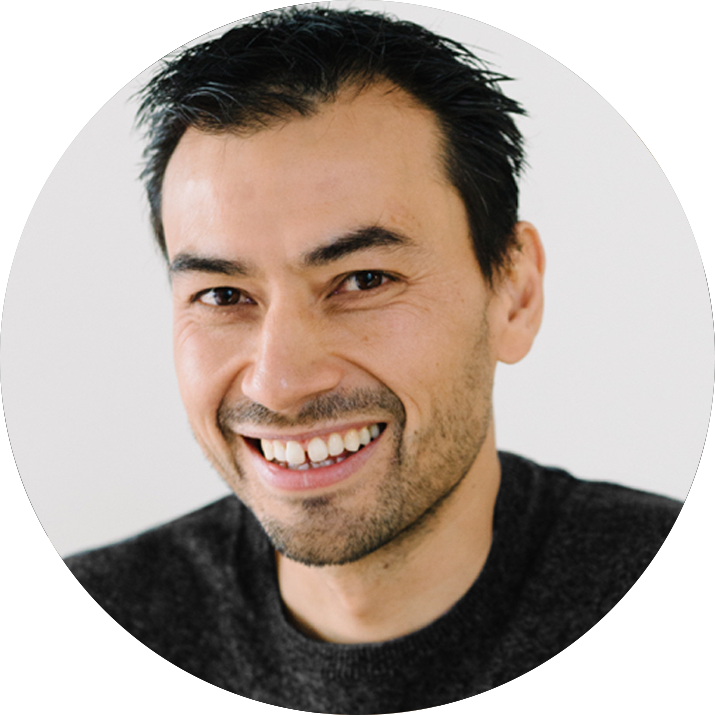 TERENCE TOH
TERENCE TOH
About Us
The Business Coach.
Terence is the founder and Managing Director of StrategiQ Corporation, a serial entrepreneur and experienced business operator who has founded, bought, grown and sold several … see more

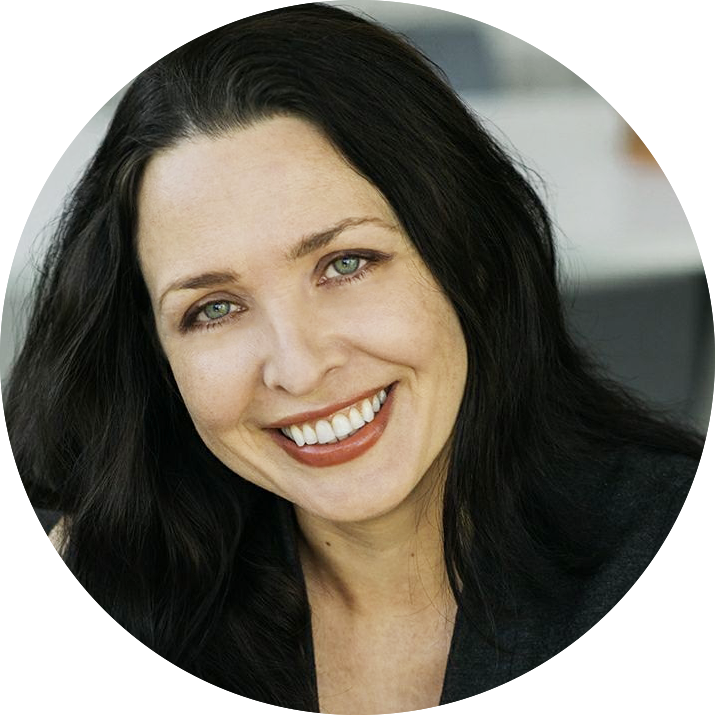 NADIA HUGHES
NADIA HUGHES
About Us
The Super Nerd.
Are you passionate about the ins and outs out of taxation legislation? With Nadia by your side, you don’t need to be. Accounting and financial planning isn’t just her … see more
